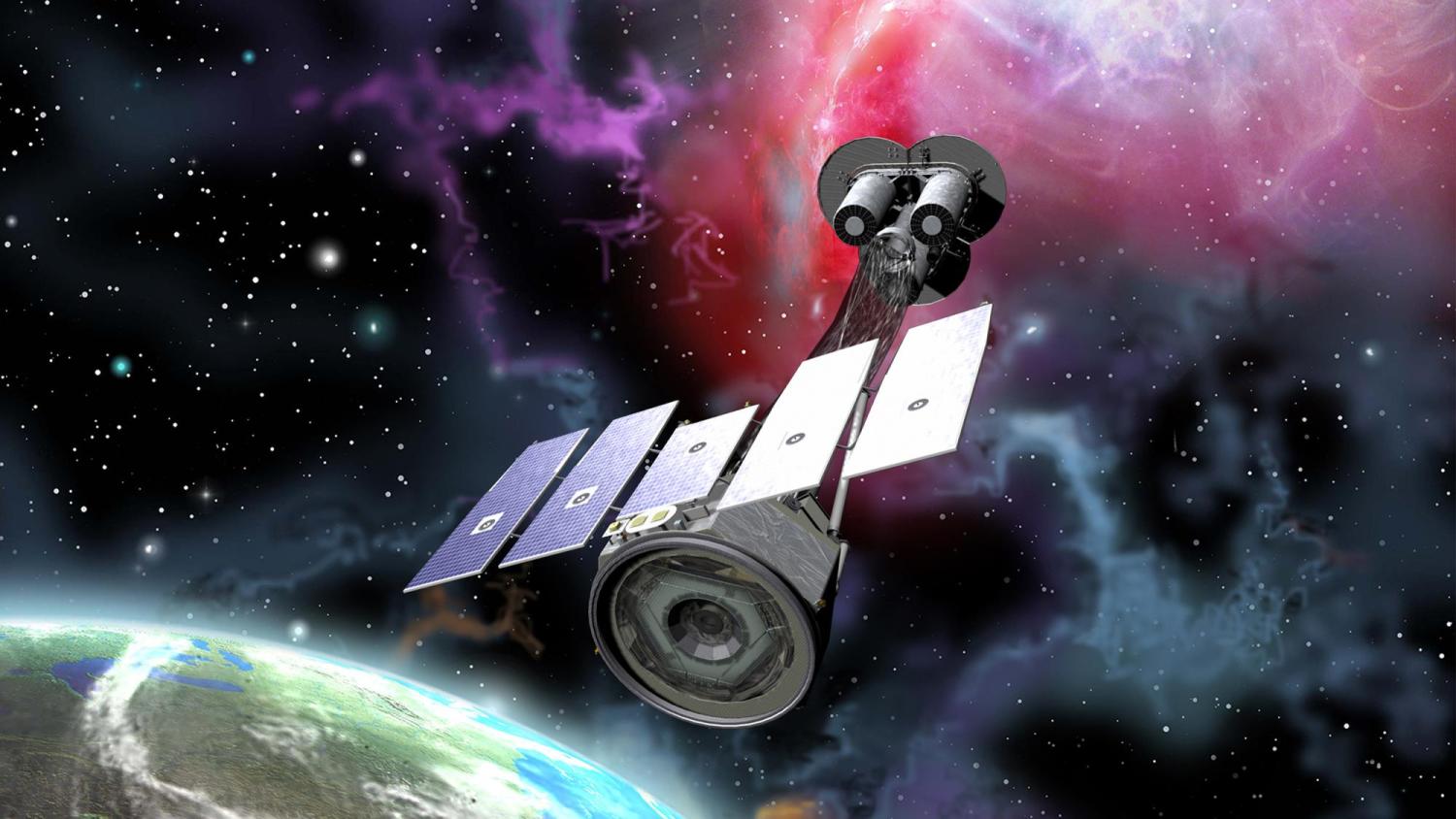Students operate $214M NASA spacecraft: ‘It’s like what you see in the movies’

Over the next two years, CU Boulder undergraduates working as flight controllers at the Laboratory for Atmospheric and Space Physics (LASP) will help manage the day-to-day mission operations of NASA’s Imaging X-Ray Polarimetry Explorer (IXPE) spacecraft. From CU Boulder’s East Campus, they’ll send commands, tell the $214 million satellite where to point, and monitor its health and safety.
Each year LASP recruits about 10 students, who spend the summer learning about spacecraft operations—from how engineers keep components warm in space to how satellites turn using thrusters and spinning motors. In all, 23 students work in operations at the institute. Mary Wells, a senior studying physics and an IXPE command controller, has certainly caught the space bug. “It’s like what you see in movies,” Wells said. “There’s a real feeling of being involved in something bigger.”

An artist’s rendition of NASA’s Imaging X-Ray Polarimetry Explorer (IXPE) mission. Illustration: NASA
Principals
CU Boulder undergraduate students; LASP Mission Operations Center Funding National Aeronautics and Space Administration (NASA)
Funding
National Aeronautics and Space Administration (NASA)
Collaboration + support
Laboratory for Atmospheric and Space Physics (LASP); Ball Aerospace; NASA’s Marshall Space Flight Center; Italian Space Agency An artist’s rendition of NASA’s Imaging X-Ray Polarimetry Explorer (IXPE) mission, which LASP students and staff are operating. Illustration: NASA
Learn more about this topic:
Students operate $214M spacecraft. ‘It’s like what you see in the movies.’

